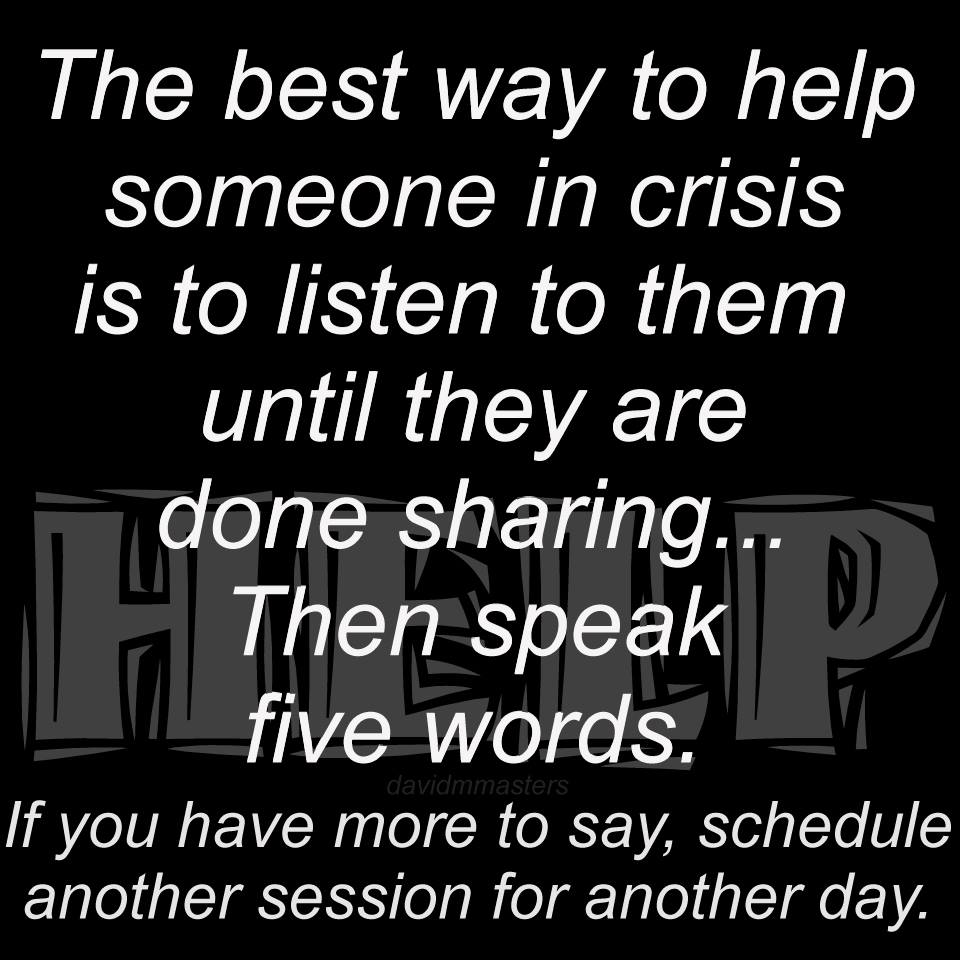For those of us in the help industry often lead with the question, “How can I help you?” If it is not just your job but your calling to help others, you will find yourself helping everyone, all the time, which if you let it get the best of you, will find yourself in burnout.
Helping others is a spiritual calling, one of the spiritual gifts (1 Corinthians 12:28) which unless you have the servant’s heart, your offer to help will only be regarded as a job. If you have the gift of helps your drive to help and your efficacy in helping far surpasses your contemporaries, and it’s easy to get lost in the exercising of your gift of helps.
Any endeavor you are incredibly passionate about can get the best of you. You want to do your best, but in order to do so you need to give from the best of you. This is far different from giving all you’ve got until there’s nothing of you left.
In my mission, “Helping others achieve their highest and best,” the word, “helping” is right at the beginning of the darn thing. Believe me, I’ve let this helping consume me so much, that there was nothing left, and it is terribly apparent, if you allow your calling to overwhelm you, you will find yourself at the most desolate place in life.
You want to offer your assistance to others with the best intentions when you ask, “How can I help you?” When people or organizations accept your offer of help and have benefitted from your assistance, they can become obsessed with your ability to serve them. This is where you, as the helper, need to be responsible enough to manage their need in respect of your desire to help (not your ability to help).
When, “How can I help you,” turns into someone’s assertion, “I need you to help me,” makes you feel good as if you are accomplishing your mission and being true to your calling, unless or until your helping has fallen out of balance.
For me to help someone achieve their highest and best, I could give and give and give even more, without regard to my self-maintenance (and I have found myself in this situation, periodically). At some point, you awake from the momentum of enthusiastic helping with a moment of clarity in the realization that you’re in need of a little (or a lot of) self-attention.
What you do at this moment of clarity makes all the difference. You can say, “I made a commitment, and I must follow-through because I gave my word,” and let your integrity take you to an early grave, or you could learn how to apply your sacred, “no.”
All things in life are subject to change, so taking action as early as possible to renegotiate the terms of your agreement to help, is of primal importance for the continued performance of your gift of helping others in perpetuity.
Even if your client, organization, or friend protests and in tears and proclaims, “But I need you,” reinforcing with, “I can’t do this without you!” you are about to allow a miracle to take place.
Your ego might step forward and assert that there is no other way for this work to continue without you, as if you were not to continue to perform your function, all your work will crumble to the ground and fail. Recognize this and keep your ego in check.
Understanding that telling someone, “no,” is a sacred act on your part which offers the person you’re politely adjusting to experience a secret, “yes.” They are not aware of the secret yes at the outset, because they may experience a feeling of rejection. Yet, the secret is that there is an amazing opportunity waiting to emerge on the other side of every no.
In this way, your sacred no ushers in growth and expansion which desires to be brought forth. Every sacred no is a secret yes.
The whole universe desires to see all the goodness be born through the work you have begun and momentum you have helped to build. When you start to withdraw from a project, it allows others to step into their gifts and special abilities.
In this moment, they are able to overcome their inner fear and obstacles because their inner hero is being called forth. Thank God, you were able to allow this to be birthed. In this way, you have encouraged someone else to embrace their gifts and special abilities to rise to achieve their highest and best.
Your sacred no helps you to maintain your high level of performance and has helped to make the world a better place.
Try it and see what happens.
Never stop inviting others with your, “How can I help you?” Just be aware that you need to serve by being true to yourself and to share from your overwhelming love and care of yourself.
Thank you for all you do to help others and make the world a better place.



